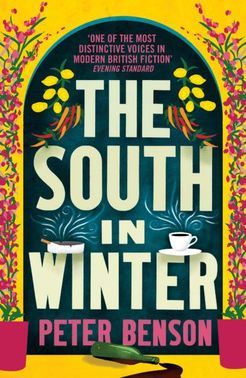Here Comes the Sun by Nicole Dennis-Benn
But changes are afoot. Thandi is discovering a mind of her own, albeit a confused adolescent mind that seeks salvation in a sketchbook, dodgy skin-lightening treatments and the attentions of a barefoot boy her schoolmates would consider beneath her. Margot is also confused both by the empty promises of her boss, Alphonse, and her feelings towards the outcast, Verdene, cursed by the neighbours as a “sodomite” and “witch”. But their personal problems are soon to be entangled with a societal one when Alphonse’s plans for a new resort threaten to wipe their neighbourhood off the map.
Despite my interest in the downside of tourism, and the plaudits the book has accrued in the US, I didn’t find this novel as engrossing initially as I expected. Although I recognised how the use of language is central to the story before the convent-educated Thandi regrets “she forgot to mangle her words, chew them up and spit them out” (p123), I stumbled over the patois and didn’t relish how, for me, it slowed things down. A stronger obstacle was that, other than young Thandi, I didn’t get the motivations of the characters until more of the back story was revealed. But when it was: wow!
This isn’t only a novel about the way in which Westerners’ lust for sea, sun and sex, and our unwillingness to pay the full price for our portion of paradise, devastates the communities we infiltrate. But it’s also a brave and psychologically astute story of how fear, poverty, powerlessness and prejudice renders love a rare commodity with abuse, neglect and trauma perpetuated across generations as mothers’ desperate attempts to protect their daughters are experienced as, at best, restrictive, at worst, as cruelty. Thanks to Oneworld for my review copy.
If you’re interested in how tourism perpetuates inequalities you might like my short stories A House for the Wazungu, Silver Bangles and Dancing White. I also have a short story on sex tourism that’s still looking for a publisher!
The South in Winter by Peter Benson
I recently shared some memories of visiting Bangladesh. After four months in India and Nepal steered by the Lonely Planet – noting down any anomalies and being thrilled to meet one of the authors on the backwaters of Kerala – I recall the excitement of crossing the border into Bangladesh with nothing to guide me but my own instincts and hastily scrawled address. As someone who’s given some thought to what motivates us to travel, this new novel about a man in the process of revising a guidebook was one not to be missed.
As a hack for Tread Lightly, “a brand dreamt up by a copywriter as he flew to New York on Concorde” (p17), Matthew Baxter is in Italy in February to revise the guidebook with an out-of-season slant. A heavy drinker, unpublished novelist and petty thief approaching fifty, he might speak the language and know his way around the country but, otherwise, Matthew is lost. The travel book industry is about to bow out to the blogosphere – “what’s a blog but a load of egocentric insights peppered with poor jokes, bad punctuation and poorly framed selfies with some landscape in the out-of-focus background?” (p104) – while his relationship with Cora, his immediate boss at Tread Lightly, broke down about six months earlier. His relationship with himself brought down long before.
With gentle humour, Peter Benson shares Matthew’s dreams (the cinema he views in sleep much more than his hopes for the future), his rambling philosophising, his attempts to compose a love poem for Cora and his cliché and superlative riven passages on the sites he visits. The minutiae of everyday life on the road (or rail), where the quality of each new bed, bath and breakfast genuinely matters, reminded me of Odysseus Abroad, but I connected more strongly with the poignancy in The South in Winter, where Matthew’s loneliness and emptiness, imperfectly masked in his itinerant lifestyle, echoed that of Steve’s obsession with travel in my novel, Underneath.
Although I’ve visited Italy a few times, I don’t know it well, but that didn’t interfere with my enjoyment of this novel. Since I started this review with a personal reminiscence, I’ll finish with one which was evoked by Matthew’s musings on opera while in Sicily. My first experience of opera was an outdoor performance of Tosca in a Roman amphitheatre, discovered entirely fortuitously because, in those days, I travelled with only very basic information from the national tourism board. While Tosca remains one of my favourites, I knew Matthew had to get back together with Cora when she answered his objections to opera with four words Soave sia il vento: If you don’t know it, and even if you do, take a moment to listen (although Mr A enjoys opera but this leaves him lukewarm).
Thanks Alma Books for my review copy, and the memories evoked!























 RSS Feed
RSS Feed





















